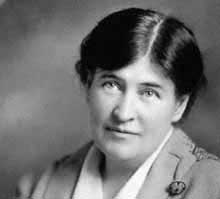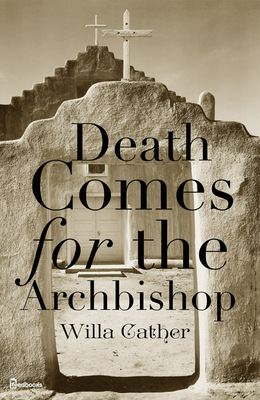 Willa Cather’s lovely book titled Death Comes for the Archbishop was universally appreciated by the group for its vivid details and even-keeled style, which we were told was the effect attempted by Cather in her desire to write in the mode of the American legend.
Willa Cather’s lovely book titled Death Comes for the Archbishop was universally appreciated by the group for its vivid details and even-keeled style, which we were told was the effect attempted by Cather in her desire to write in the mode of the American legend.
The story follows the life of Father Jean Marie Latour, newly appointed bishop of the New Mexico territory circa 1850, and his vicar Joseph Vaillant as they emigrate from France and set up their ministry in the wild desert region.
The book reads like a story reaching for the broadest audience of mostly readers to the east who have heard with fascination the tales of Kit Carson, the American Indians, and the frontier. The pacing is steady, and each episode of their adventures is largely encapsulated chapter by chapter.
One cannot help being charmed and inspired by Latour and his vicar by the end of the book, and his passing at the end is the closing of a warm and eventful life visited by perils, challenges, and occasionally the miraculous.
I will only add, since I write this blog, that I found the book best suited to readers of a milder constitution as the perils were quickly resolved and the reader is not taken very far afield either emotionally or in the literary terms of structure, vocab ulary, or plot. Her intention of writing in the legend-style was effective, but undemanding.
ulary, or plot. Her intention of writing in the legend-style was effective, but undemanding.
The meeting was again at Radio Coffee Bar, and the vote to continue in that venue was overwhelming.
The book for April is Christopher Marlowe’s The Jew of Malta and the book for May after a 3-way runoff vote will be Midnight’s Children by Salmon Rushdie.
She’s a looker!
Thanks, Jeff, for dutifully updating the blog post every month. I think you encapsulated it well… Good but not demanding.